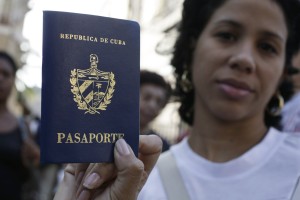
As decades of trade and travel restrictions on Cuba draw to a close today, for some Cuban Americans, the impact of the relaxed restrictions is hardly impactful. Though the new rules allow Americans to travel to Cuba more freely for approved reasons, the new provisions for Cubans living in America – increased quarterly remittances from $500 to $2000, most notably – have not been received as warmly as imagined, while travel is still largely controlled by the Cuban government.
“Traveling with an American passport would make a difference,” said Adonis Garces, a Miami resident who came to the States from Cuba in 2006. He is referring to the rule that Cubans who came to the U.S. after 1970 must still apply for a Cuban passport at a cost of $430 even if they are American citizens, and entails a very lengthy process. Travel for some who left Cuba illegally will be made more difficult, if not impossible altogether.
Garces, like many others, does not see the utility in requiring American citizens with Cuban roots to apply for a Cuban passport, citing his father, an American citizen for over 35 years, who is categorized differently than a citizen born and raised in the U.S. Likewise, the increase from $500 to $2000 in allowed remittances will have sparse effect on Cuban-Americans who send money home, for many cannot afford to send that much to the island in the first place.
“For me, in order for my family situation to change, I don’t need the embargo to be lifted,” Garces said. “I need the communist political system to change.”
It is complexities like these which cloud the effect of the newly lifted restrictions. Interest in travel to the country has surely increased for both Cuban and non-Cuban-Americans, but sights are set even farther down the road and do not stop at subjectively easier travel.

Recent Comments